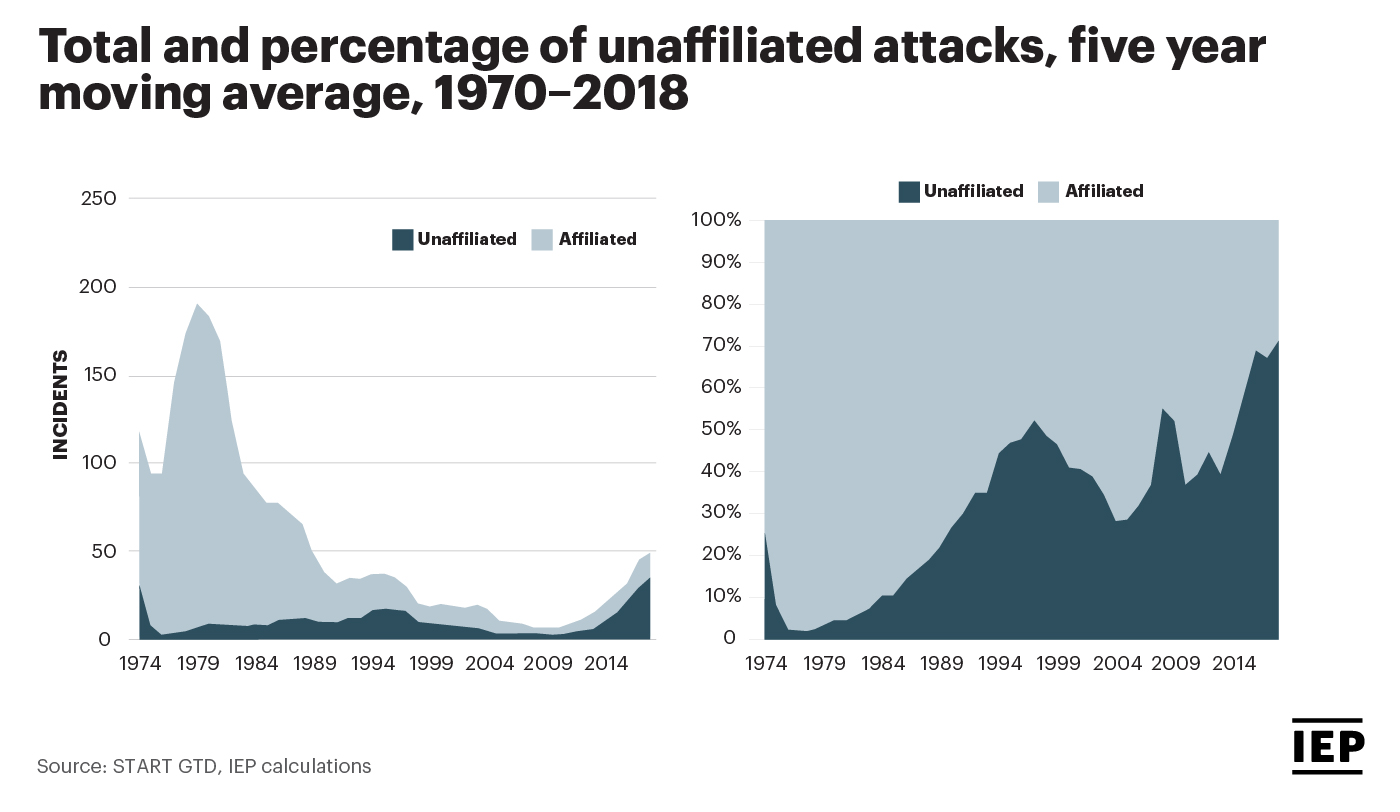The 2019 Global Terrorism Index saw an increase in ‘Lone Wolf Terrorism,’ a term often referring to far-right mass shootings by self radicalised or online radicalised individuals.
Last year’s Global Terrorism Index found that more terrorist attacks are being committed at the hands of self radicalised ‘lone wolf terrorists’ in the West.
Long-term data trends reveal the proportion of unaffiliated attacks* is rising. In the mid-1970s, unaffiliated attacks accounted for 5% of total terrorist attacks in comparison to 70% for the period between 2014 and 2018.
Unaffiliated attacks are attacks committed by individuals unaffiliated to a terrorist group and are often referred to today as ‘Lone Wolf Terrorism’.
Individuals who are self-radicalised or radicalised primarily online usually carry out mass shootings. When we say self-radicalised, we are making a distinction between in-person contact with other people.
In general, far-right terrorists are less likely to be formally affiliated with a group than other terrorists, according to the data.

The Global Terrorism Database attributes terrorist attacks to specific groups or broader identity groups such as:
For attacks attributed to far-right and Islamist groups or individuals, just under 60% were carried out by unaffiliated individuals.
By contrast, separatist, far-left, and environmental terrorists were typically affiliated with a specific group. In fact, unaffiliated individuals carried out just nine, ten, and 15% of attacks respectively.
Analysis of the 32 far-right terrorist attacks since 2011 that caused at least one fatality found that less than a quarter of the perpetrators had definite in-person contact with other far-right individuals or groups. While over a third appeared to be primarily radicalised online.
Incidents of far-right terrorism have increased in the West, particularly in Western Europe, North America, and Oceania. In fact, over the past five years, the number of incidents increased by a shocking 320%.